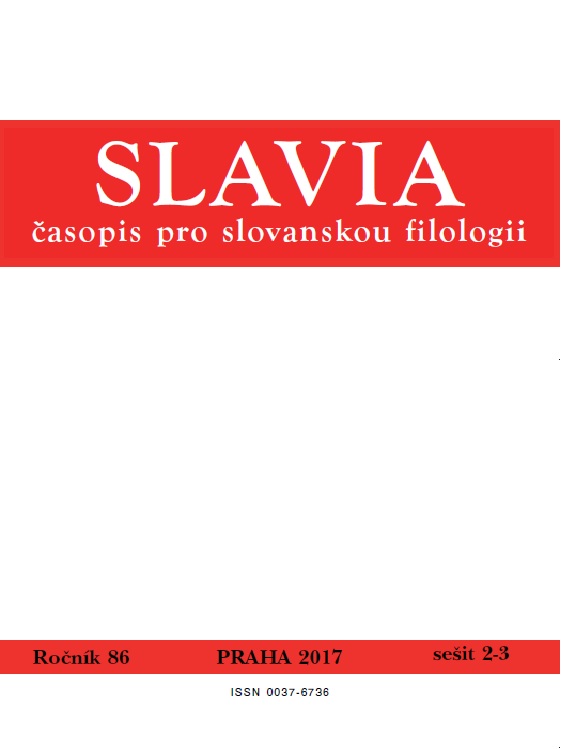Гипотаксис в словенском языке: роли придаточных предложений с точки зрения особенностей
Hypotaxis in Slovene: the Roles of Subordinate Clauses from the Viewpoint of Particularity
Author(s): Andreja ŽeleSubject(s): Syntax, Semantics
Published by: AV ČR - Akademie věd České republiky - Slovanský ústav and Euroslavica
Keywords: hypotaxis; Slovene subordinate clauses; functional-syntactic viewpoint; syntactic- -structural approach; semantic-syntactic viewpoint; transformations
Summary/Abstract: The paper aims to present the particularities of Slovene hypotaxis. The structural-functional viewpoint, whose primary criterion is the functional-syntactic or, rather, syntactic-structural approach and its secondary criterion is the semantic-syntactic approach, turned out to be all- -encompassing and the most comprehensive in describing Slovene hypotaxis and establishing a typology of Slovene subordinate clauses. While the functional-syntactic or, rather, syntactic- -structural approach is most systemically and thoroughly realized in the so-called sentence element subordinate clauses, the same cannot be applied to subordinate clauses which are not participants of the matrix proposition. For better understanding and potential categorization among Slovene subordinate clauses, a more thorough description is needed both for the so- -called content subordinate clauses which are propositional participants of the matrix proposition and the so-called non-participant, pseudo adverbial clauses which are not propositional participants of the matrix proposition, but provide additional, collocable and circumstantial qualification with an independent proposition that can also be expressed with coordination. Pseudo adverbial clauses can therefore only establish collocable relationships of time, cause, or manner with the matrix clause, thus creating a circumstantial correlation between two otherwise independent propositions that are expressed subordinately or coordinately. The importance of relationships between propositions in a complex sentence is also stressed by the ability or inability of transformation of particular relationships. It will be illustrated with Slovene examples why some sentence elements cannot act as complete sentences and why others can.
Journal: Slavia - časopis pro slovanskou filologii
- Issue Year: LXXXVI/2017
- Issue No: 2-3
- Page Range: 279-295
- Page Count: 17
- Language: Russian
- Content File-PDF

